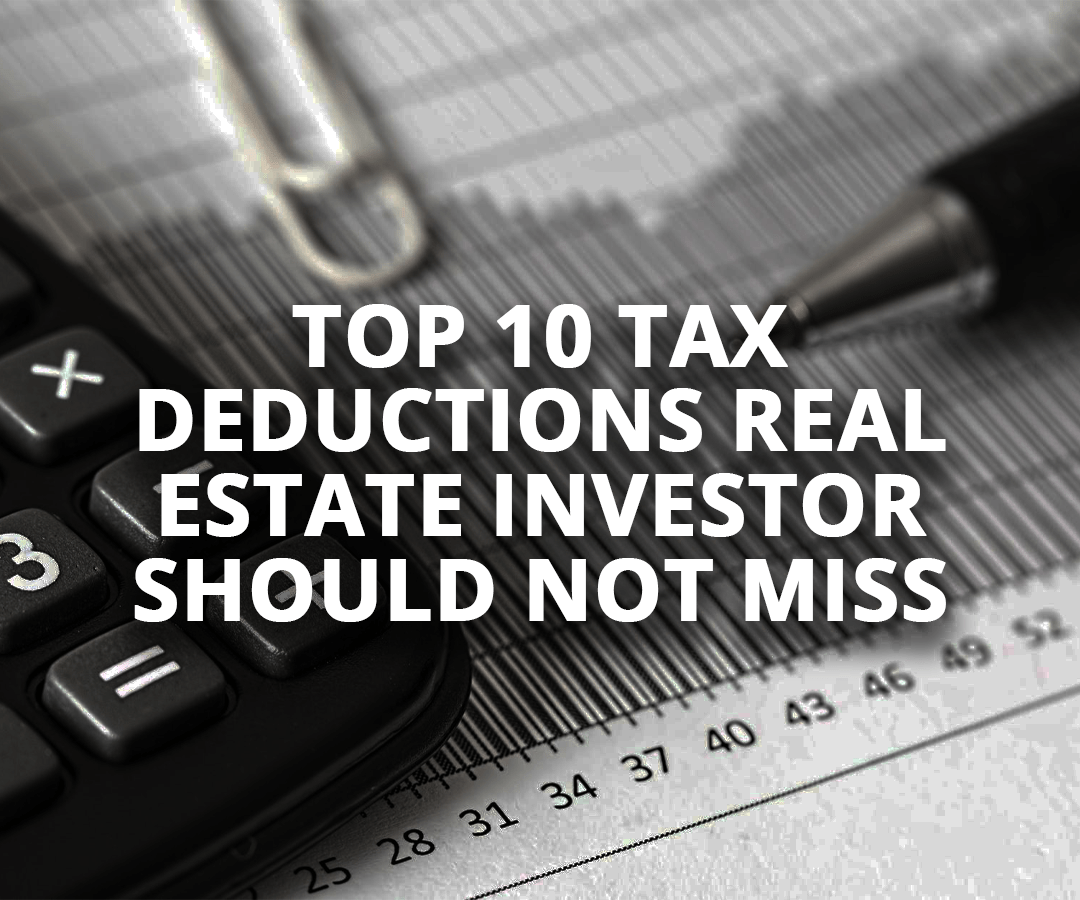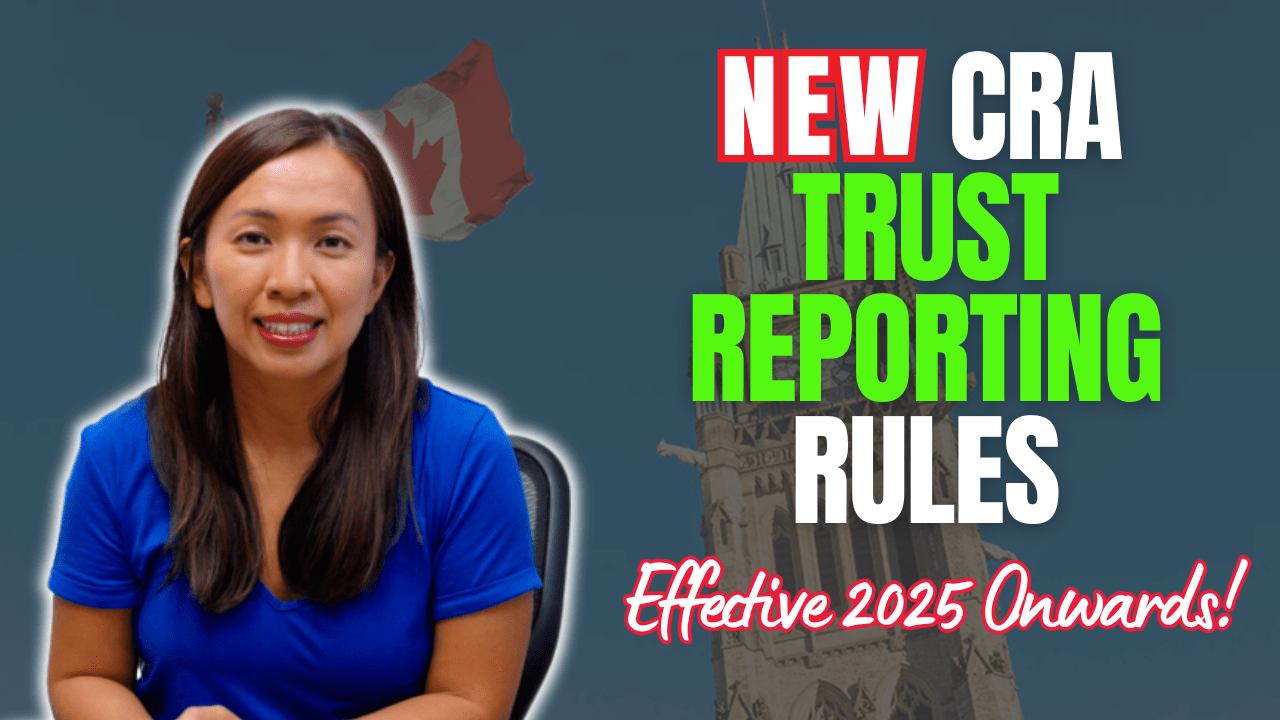Today is a big day.
Today is the first day of 3-day full day training for our March Stock Hacker Academy beginner course.

We added in an all-new day to make sure our students can get the most out of it. As always, I am going to present on the tax implication of stock options trading.
Today is also the closing day of our new home. We’re not moving yet, we’re doing some small renovation before we move in.
I smiled when I typed up the word small. We usually start with something small, then the next small thing and then we end up also updating the kitchen as well.
Oh well… 😊
It’s also March, which means that tax season is here.
I want to take this opportunity to recap on the top 10 tax deductions a real estate investor should not miss.
Mortgage interest, not the mortgage principal
Many real estate investors think cash flow as their net income and they think that they get taxed on their net cash flow. If you would like to learn more about real estate investors.
Monthly mortgage payment consists of mortgage interest and principal pay down. Mortgage interest is a deductible expense but principal pay down is not.
The breakdown between the two can usually be found on your annual mortgage statement you receive at the beginning of next year.
When you estimate the tax liability owing, you need to add your net cash flow to the mortgage paydown to compute your taxable income.
Insurance
Insurance coverage for rental properties is different than the home that you live in. Make sure you notify the insurance company about the change of use and that appropriate coverage is taken.
Generally speaking, insurance premiums on rental properties are more expensive than your personal home.
Make sure you do have sufficient third party liability insurance.
Advertising
Any advertising cost incurred for the purpose of renting out the property is deductible. This includes all the Kijiji ad costs, ‘for rent’ signs that you purchase from Home Depot or specifically made for your property, etc.
Property management fees / commission you paid to fill the property
If you hire a property manager or use a realtor to fill the property for you, these are all deductible expenses. Make sure you get the invoice from them to support your expense.
Repairs & maintenance
Repairs & maintenance are generally deductible expenses. The tricky part is to determine whether an expense incurred should be capitalized or should be expensed.
Expenses incurred to repair are deductible. Expenses incurred to improve the property should be capitalized.
If you paint the house, generally speaking it is a deductible current year expense.
If you pay for the stamp concrete for your driveway which did not exist before, this will be capitalized and appropriate capital cost allowance can be taken on it.
Property taxes and utilities
Municipal property taxes and utilities are generally deductible against the rental income. One of the most missed property tax and utilities deduction is at the year of purchase or the year of sale. Some of the adjustments are handled by the lawyers and many investors would miss these deductions.
Specifically for investors who converted their primary residence to a rental property, only the expenses related to the rental period would be deductible.
Financing charge
Financing charge is usually one of the most missed deductions for real estate investors. Some real estate investors incur mortgage insurance expense or finder fees for their mortgages.
These expenses can be deductible over five years, even though these fees might be added to the mortgage.
Auto mileage
This one is tricky. Different criteria apply if you own one property versus when you own more than one property.
For investors who only own one property, you are only allowed to deduct motor vehicle expenses if
- The rental property is in the same general area that you live in
- You do repairs & maintenance for your property
- You have vehicle expenses to transfer tools & materials to the property
But you cannot deduct the expenses you incur for the purpose of collecting rent if you have only one property.
Now for investors who own more than one rental properties, on top of the expenses incurred for repairs & maintenance and transferring tools & materials as mentioned above, you can also deduct the following expenses:
- Collect rents
- Supervise repairs
- Generally manage the properties
To qualify for the multiple properties criteria, they must have at least two different locations than your principal residence. This means that if you rent out your basement apartment and have one single family detached home as rental property, you still cannot deduction any expenses incurred for collection of rent, supervision of repairs and general management of the properties.
Capital cost allowance
Capital cost allowance is the tax term Canada Revenue Agency uses to represent the wear and tear on the building. It is a deferral mechanism allowed by CRA to defer the income on your properties until the year you sell it.
You can deduct capital cost allowance to reduce your net rental income to zero.
However, capital cost allowance is somewhat similar to RRSP. It’s a tax deferral, not a tax deduction.
When you sell it, all capital cost allowance taken against your rental property throughout the year are reported as income, assuming the amount you sell it for is higher than the amount you pay for the property.
You don’t pay tax not, but you pay the tax when you sell.
Line of credit interest
Many real estate investors start out by refinancing their own home to obtain the downpayment of their real estate investment.
As a general rule of thumb, any interest expenses you incurred for the purpose of earning income are deductible subject to a list of exception in the Income Tax Act.
Earn your deduction by keeping full documentation
In Canada, you have to “earn” your deduction. What it means is that documentation matters.
Whether you are claiming home office expense or automobile expenses, you are required to keep the actual receipts or the invoice.
VISA card statement and bank transactions are not enough to prove that the expenses were incurred for earning income. CRA does not accept bank statements as a proof of deduction.
Make sure you keep all the receipts and all relevant documentation.
Until next time, happy Canadian Real Estate Investing.
Cherry Chan, CPA, CA
Your Real Estate Accountant






guillermo nabong
Hi,
We are thinking of borrowing from Heloc and use it as downpayment for a new home, which will become our
primary resident. Our current home we intend to convert to rental property. Can we deduct the heloc interest from the rental income when computing taxable rental income?
Thanks
Al
Hi Cherry,
I installed a brand new AC in summer of 2020 at the rental property.Can I expense this cost as maintenance when filling my tax for 2020.
thanks